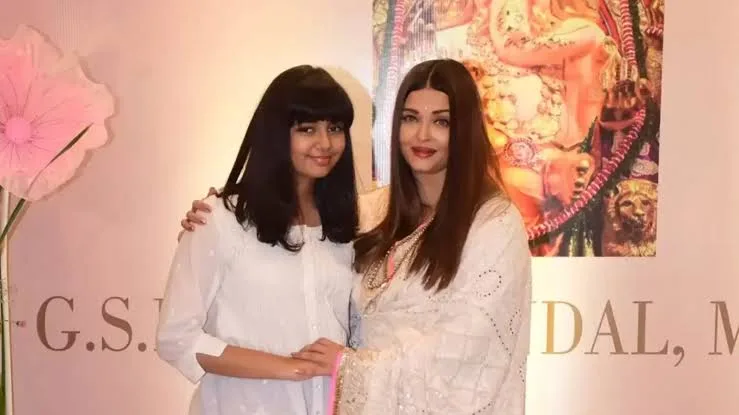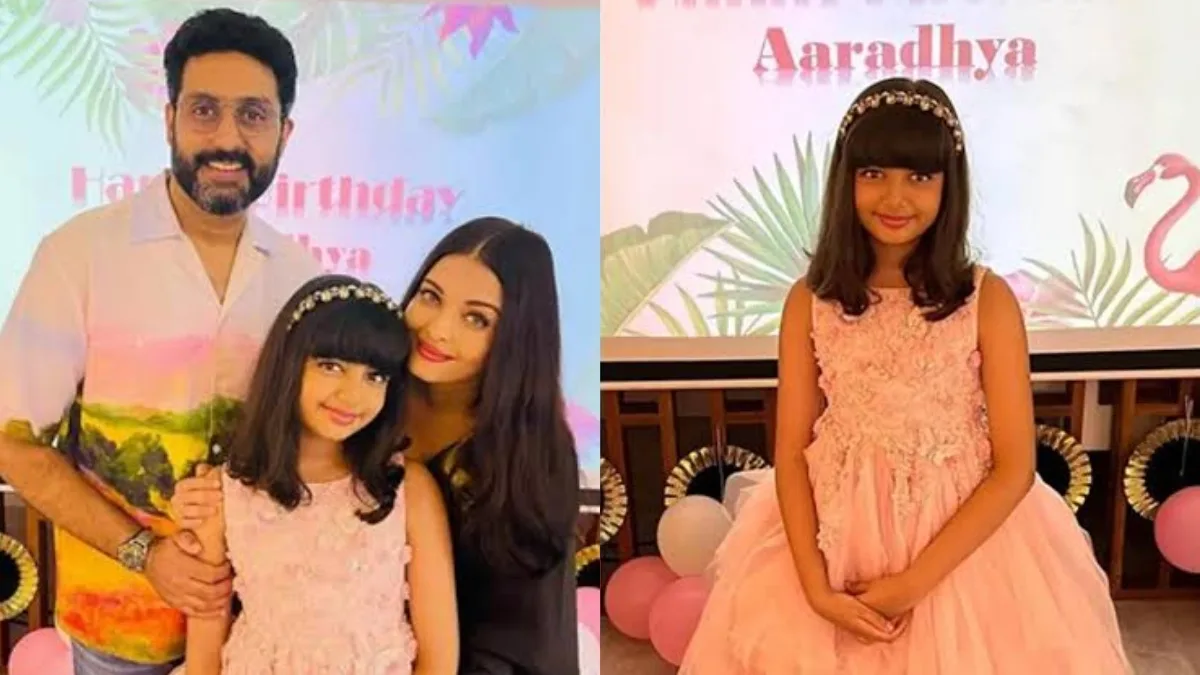Aaradhya Bachchan Takes Legal Action Against Misleading Health Rumours, Court Directs Google to Respond: In a bold move to protect her privacy and reputation, Aaradhya Bachchan, the young daughter of Bollywood icons Abhishek Bachchan and Aishwarya Rai Bachchan, has filed a lawsuit in the Delhi High Court over false and misleading health-related content circulating online. This legal action comes after various YouTube channels spread disturbing and entirely fabricated claims about her health, including reports that she was critically ill or even deceased. Abhishek Bachchan opens up on comparisons with Amitabh Bachchan, reveals Jaya Bachchan’s reaction
The Delhi High Court has since issued a notice to Google, asking the tech giant to respond to the plea filed on behalf of Aaradhya Bachchan. This plea seeks an expedited resolution concerning misleading content on platforms like YouTube. Aaradhya’s father, Abhishek Bachchan, is acting as her representative in the case, which has drawn significant attention due to the high profile of the Bachchan family and the sensitive nature of the claims involved.
Court Proceedings and Interim Order
The Delhi High Court, under the direction of Justice Mini Pushkarna, has allowed for a summary judgment in the case, given that the parties being sued, including several YouTube channels, have failed to respond to the legal notice. This step could accelerate the legal process, as the court aims to swiftly address the harm caused by these defamatory videos. The case has been set for further hearing on March 17, 2025.

In a significant move on April 20, 2023, the Delhi High Court had already issued an interim order restraining several YouTube channels from publishing any further misleading content about Aaradhya’s health. These channels were accused of circulating videos claiming that Aaradhya was “critically ill” or “no more,” which not only misrepresented her condition but also contributed to the spread of distressing and false information. The court labelled such content as a form of “morbid perversity,” and highlighted how the videos were violating Aaradhya’s privacy and were damaging to the Bachchan family’s reputation.
The Lawsuit and Defendants
The lawsuit, which is central to the ongoing case, targets a number of YouTube channels, including Bollywood Time, Bolly Pakora, Bolly Samosa, and Bollywood Shine. These channels have been accused of spreading unfounded rumours about Aaradhya’s health with the intent of generating profit and attracting viewers. The Bachchan family, in their lawsuit, asserts that these videos were designed for “shock value” and “overnight popularity,” with little regard for the harm they would cause to Aaradhya’s well-being or her family’s public image.
The Bachchans have maintained that their name and legacy represent the “highest virtues” and that it is essential to protect the family’s reputation, which is widely regarded as a symbol of respectability in Indian society. The lawsuit underscores that the spread of false health rumours was not only damaging on a personal level but was also a violation of Aaradhya’s privacy, given her status as a minor and the public nature of the attacks.
Aaradhya, born on November 16, 2011, has been in the limelight since birth, as she is the child of two of Bollywood’s most famous stars. Despite her young age, Aaradhya has faced intense media attention. Whether it is her occasional public appearances, such as those at the prestigious Cannes Film Festival, or her legal steps to protect her privacy, Aaradhya has become a regular figure in the headlines.
The Role of Google and YouTube
The court’s decision to issue a notice to Google is a pivotal moment in the case. Google, which owns YouTube, has been called to answer for its role in hosting and distributing the defamatory videos that have caused distress to the Bachchan family. The Bachchans’ legal team has pointed out that despite the interim order issued in April 2023, these videos continued to appear on YouTube for months after the court’s directive. The case underscores the responsibility of tech companies, like Google, in moderating content on their platforms and addressing the spread of misinformation.
This situation also raises questions about the role of digital platforms in curbing harmful content and ensuring that individuals, especially minors, are protected from online harassment. Legal experts have pointed out that while YouTube and similar platforms have become key players in global communication, they also bear a substantial responsibility in managing the vast amount of content uploaded daily and preventing the spread of fake news, hate speech, and defamatory material.
The Delhi High Court’s ruling is being closely watched, as it could set an important precedent for the regulation of content on social media platforms and their responsibility to protect individuals from harmful, false information. This case could also prompt other celebrities or public figures to take legal action against platforms that allow the circulation of defamatory content.
The Impact of Defamation and Privacy Violation
The Bachchan family’s lawsuit highlights a growing issue in the digital age: the rapid spread of misinformation and the damage it can cause to both individuals and families. In this case, the misinformation about Aaradhya’s health has not only harmed the Bachchans on a personal level but has also exposed the wider issue of privacy violations and the erosion of personal boundaries due to the ubiquity of digital media.
For Aaradhya, a young child who has grown up under the constant scrutiny of the public eye, this case is about more than just her health; it is about safeguarding her privacy and well-being in a world where public figures, especially those who are minors, are often targeted for profit or fame. The Bachchans, in their lawsuit, have made it clear that they will take all necessary steps to protect Aaradhya’s right to privacy and ensure that such misleading content does not continue to spread unchecked.
A New Era for Legal Protection in the Digital Age
This legal action marks a significant moment in the ongoing dialogue about the need for stronger legal protections against online harassment, misinformation, and defamation. In recent years, there has been increasing recognition of the need for stricter regulations on social media platforms, and the Bachchans’ case could serve as a critical example of how the law can be used to combat digital defamation.
The outcome of the case will likely influence the way courts in India and across the world handle similar cases in the future. It will also send a message to digital platforms that they must take a more active role in preventing the spread of harmful and misleading content. As for Aaradhya Bachchan and her family, this legal battle is not just about clearing her name; it is a fight to preserve her dignity and protect her from the harmful effects of an increasingly digital and often intrusive public sphere.
Conclusion
The ongoing case of Aaradhya Bachchan against misleading health rumours highlights the need for both legal and digital systems to evolve in order to protect the privacy and well-being of individuals, particularly minors, in the digital age. The Delhi High Court’s interim orders and the legal actions taken by the Bachchan family are part of a larger movement toward accountability in online spaces, especially for platforms like YouTube and Google. The case also emphasizes the importance of safeguarding the reputations of public figures, especially children, from malicious rumours and defamatory content.
As the hearing on March 17, 2025, approaches, all eyes will be on the court’s next steps and how the tech industry will respond to these pressing issues of misinformation, privacy, and digital defamation. Ultimately, the outcome of this case could have far-reaching implications for the way legal systems across the world address similar challenges in an increasingly connected and digital world.
